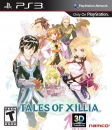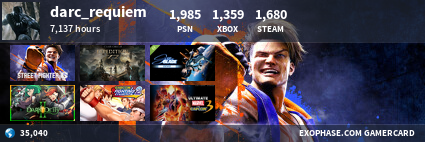Fight-the-Streets said:
I don't want to drag on this topic but as someone who is first and foremost a Nintendo-gamer, owning all Nintendo consoles (except the Virtual Boy) I can somewhat relate to where Alistair is coming from. I play may Switch 95% docked and I always very much preferred Nintendo's home consoles over the handhelds. It is my wet dream that Nintendo will release a powerful home console in the future. But I understand that this is not very likely and I also understand why Nintendo is doing what they are doing. It simply makes the most sense, businesswise. Seeing that the Switch is tremendously successful, how will the successor look like? Well, most probably just a more powerful Switch (yes, probably with one or two new little gimmicks). But how did Nintendo came to where they are now? Looking back, their handhelds were always much more successful than their home consoles and their profits even more so. You have to consider that handhelds are cheaper to make and their games are faster and cheaper to make, all resulting in adding up to the profit. Nevertheless, the Wii was tremendously successful and Nintendo thought they have found the golden formula for their home consoles, i.e. cheap casual console with a gimmick (remote controllers). But then, obviously, they didn't really understand their own golden formula and instead of continuing with just a more powerful Wii 2 (a Super Wii), they released the Wii U instead, a complete new console, expensive and with a complete new gimmick (gamepad with a screen). Sure, you still could use your Wii remote controllers on it but barely any new interesting game came out using them and the horrendous marketing did the rest to kill off the success of the Wii U. With that, Nintendo was at their lowest point, even their newest handheld, the Nintendo 3DS, was not a success compared to its tremendously successful predecessor, the DS. I can only guess what Nintendo talked about then in their board meetings but I think they analysed the gaming market and looked at their competitors. Sony and Microsoft had successful powerful home consoles and it was clear where the road is leading to in the next generations: to even more powerful and even more expensive consoles. Sony and Microsoft will fight each other in a red ocean market with diminishing returns. So, they thought, if we enter this market as well, this red ocean will become even bloodier and the return will diminish even further. Further, they knew that Nintendo is a much smaller company than Sony and Microsoft, in order words, the war chests of their competitors are much bigger and they are able to stay in the fight for a much longer time. Sony and Microsoft can afford to sell consoles for a loss, Nintendo can't (yes they did it in the beginning for the Wii U but they hated it), Sony and Microsoft can afford to invest into expensive high-end servers for online gaming, related community services and support, etc. pp., Nintendo can't. For that, Nintendo must rely much more on expensive 3rd parties and external contractors than their competitors who have lots of the necessary knowledge and manpower inhouse. The 7. generation has shown that online gaming is huge and will have a huge growth rate. Nintendo will not really be able to compete with Sony and Microsoft on that ground. On top of it, smartphones came and became a serious thread for handheld consoles. So what to do, they ask themselves? Hmmm, hmmm, hmmm, "How about a hybrid console?", someone asked. All the others: "a hybrid console?" Hmmm, hmmm, hmmm, "that's actually a very clever idea if we do it right!" Thus, project NX was born and resulted in the Nintendo Switch which in turn determined the fate of Nintendo... . |




















































